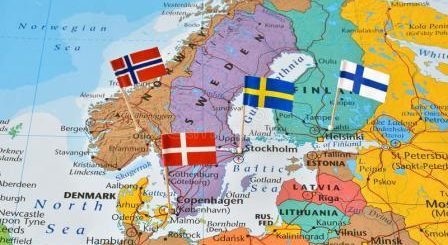Bhutan PM Tshering Tobgay arrives on 3-day India trip
Bhutan’s Prime Minister Tshering Tobgay arrived India on a three-day visit. He was received by the MoS VK Singh.
Golden Jubilee of the diplomatic relationship between India and Bhutan which was established in 1968 with the establishment of a special office of India in Thimphu! PM of Bhutan, Dasho Tshering Tobgay was warmly welcomed in Delhi by MoS @Gen_VKSingh. pic.twitter.com/LdfNQm959T
— Raveesh Kumar (@MEAIndia) July 5, 2018
Indian External Affairs Minister Sushma Swaraj met Tobgay and discussed ways to deepen overall bilateral cooperation. In a tweet, Ministry of External Affairs (MEA) spokesperson Raveesh Kumar said Swaraj and the Bhutanese PM held “warm discussions” to take the ties between the two countries to new heights.
Exceptional, time-tested and everlasting relationship! EAM @SushmaSwaraj called on Prime Minister of #Bhutan @tsheringtobgay. Warm discussions on taking the relationship to new heights during the Golden Jubilee Year of establishment of diplomatic relations. pic.twitter.com/j73YzESrVv
— Raveesh Kumar (@MEAIndia) July 5, 2018
Prime Minister Narendra Modi will hold extensive talks with his Bhutanese counterpart Tshering Tobgay on July 7, 2018, to further boost defence, security and strategic cooperation between the two neighbouring countries.
In their talks, Modi and Tobgay are expected to deliberate on the situation in Doklam tri-junction, the site of the 73-day-long standoff between Indian and Chinese armies last year.
Earlier In February, Tobgay had visited Guwahati to participate in an investors’ summit on the sidelines of which he and Modi had held talks. A few days after Tobgay’s visit, National Security Adviser Ajit Doval, Foreign Secretary Vijay Gokhale and Chief of Army Staff General Bipin Rawat had quietly travelled to Bhutan where they held extensive talks with the Bhutanese leadership on key strategic issues including the situation in Doklam.
The land in Doklam spans 269 square kilometres on a sparsely populated plateau in western Bhutan, which has no diplomatic ties with China and coordinates its relations with Beijing through New Delhi.
In 1949, Bhutan signed a treaty with India giving allowance to India to guide its diplomatic and defence affairs. In 2007, the treaty was superseded by a new Friendship Treaty that replaced the provision that made it mandatory for Bhutan to take India’s guidance on foreign policy, provided broader sovereignty but also stated in its Article 2:
In keeping with the abiding ties of close friendship and cooperation between Bhutan and India, the Government of the Kingdom of Bhutan and the Government of the Republic of India shall cooperate closely with each other on issues relating to their national interests.
Source: PIB, Twitter
Mukhi
The Kootneeti Indian Diplomacy Team
Read: China is building helipads, sentry posts and trenches in Doklam: Nirmala Sitharaman



















